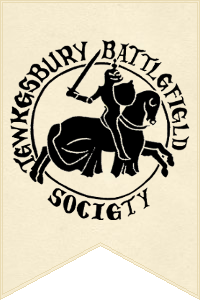March 2nd 1471: Vlissingen
A map of Vlissingen from the Atlas von Loon
(Source)
Charles Duke of Burgundy was being threatened by France and was concerned that the Earl of Warwick was intending to turn England against him as a quid pro quo for the support he had received from France. Duke Charles funded Edward’s return to England to the tune of £20,000. He also gave support by way of troops, but this was limited because of concern about French aggression at home. His little army grew, and was said to include nine hundred Englishmen as well as ‘three hundred of Flemmynges with hande-gonnes’; the ‘dark and smoky’ gunners, masters of a technology little known in England, where the long-bow was the weapon of choice.
Edward quietly assembled a fleet of thirty-six ships, including a large contingent from the Hanseatic League, who agreed to join him in his venture in return for the return of their old trading privileges plus a little more.
Edward’s party processed from Duke Charles’ court at Bruges to the seaport of Vlissingen (Flushing) Alongside Edward were Lord Hastings and Lord Saye and Sele. On Saturday 2nd March, he embarked on the ‘Antony’ to cross the North Sea to England. The weather, though, was not favourable for sailing, his fleet remained in port and his men in their uncomfortable quarters, a situation which lasted for several days.
The ‘Arrivall of King Edward’ describes the events:
In the year of grace 1471, after the computing of the church of England, the ii day of Marche, ending the x. year of the reign of our sovereign Lord King Edward the IV by the grace of God King of England and of France, and Lord of Ireland, the said most noble king accompanied with ii thousand English men, well chosen, intending to pass the sea, and to re-enter and recover his realm of England, at that time usurped and occupied by Henry, called Henry the VI, by the traitorous means of his great rebel Richard, Earl of Warwick, and his accomplices, entered into his ship, afore the haven of Flushing, in Zeeland, the said ii day of Marche; and, forasmuch as after he was in the ship, and the fellowship also, with all that to them appertained, the wind fell not good for him, he therefore wold not return again to the land, but abode in his ship, and all his fellowship in like wise, …. abiding good wind and weather.

